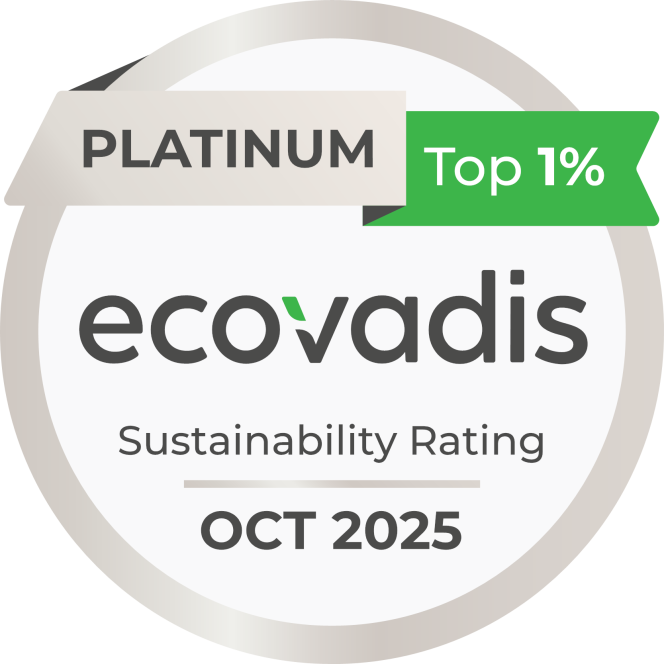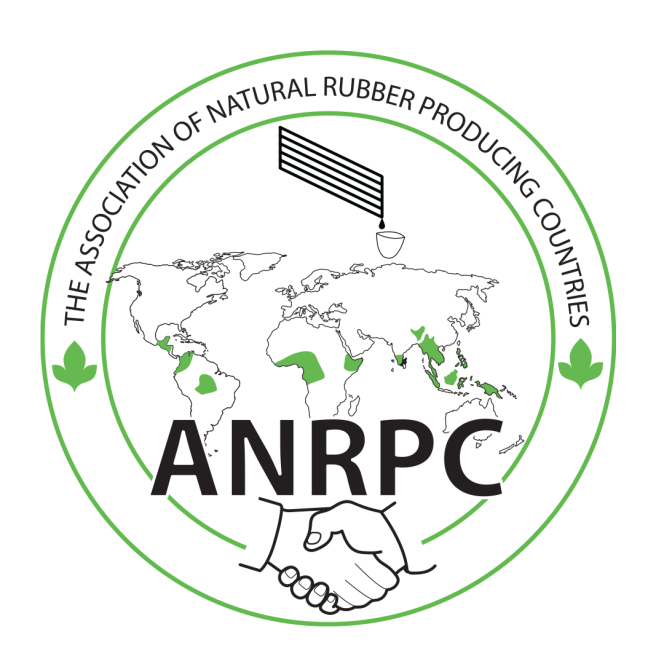LANXESS confirms and narrows corridor for 2020 guidance
- By TT News
- November 10, 2020
LANXESS remains on track despite the impact of the coronavirus crisis: Following the third quarter, the specialty chemicals company is confirming and narrowing the corridor for the guidance for 2020 and now expects EBITDA pre exceptionals for the full year to come in between EUR 820 million and EUR 880 million. Earnings were previously expected in the range of EUR 800 million to EUR 900 million.
“We are continuing on course in the troubled waters of the coronavirus crisis and have specified our 2020 guidance. We want to deliver what we announced in spring. Given these volatile times and the many uncertainties, this is a great achievement of the entire LANXESS team and I am very proud of this,” said Matthias Zachert, Chairman of the Board of Management at LANXESS AG.
LANXESS will be paying a special bonus for the extraordinary commitment of its employees during the coronavirus pandemic. “In particular, our colleagues at the plants played a crucial role in keeping our business running during the crisis,” said Zachert. “With this bonus, we would like to thank them and all the others who have made special contributions over the past months.” In total, LANXESS will distribute a high single-digit million euro amount. The amount of the payment varies from employee to employee. In Germany, the special bonus will be paid out in December. Different rules apply in the other countries.
Coronavirus crisis affected business figures
The coronavirus crisis continued to affect business figures in the third quarter. At EUR 193 million, EBITDA pre exceptionals was 28.3 percent down on the prior year’s figure of EUR 269 million. The EBITDA margin pre exceptionals declined to 13.2 percent, against 15.8 percent in the prior quarter. In addition to the pandemic, a planned major maintenance shutdown in Belgium, effects from reduced selling prices and adverse exchange rate effects, particularly relating to the U.S. dollar, burdened the result. By contrast, business in the Consumer Protection segment continued to develop well. There were also positive signals from the markets compared with the previous quarter.
“In many businesses, we are seeing indications that things are taking a turn for the better. Demand in key customer industries, including the automotive sector, picked up again in comparison to the second quarter. China and the U.S., in particular, are providing positive stimuli,” said Zachert.
Group sales amounted to EUR 1.461 billion, down 14.3 percent on the previous year’s figure of EUR 1.704 billion. Net income from continuing operations fell by 68.4 percent from EUR 79 million to EUR 25 million.
Segments: Consumer Protection remains strong pillar
Demand in the Advanced Intermediates segment stabilized in both business units compared with the second quarter, so that sales volumes almost reached the previous year’s level. However, given lower selling prices and negative exchange rate effects, sales and earnings were down year on year. Sales decreased by 14.4 percent from EUR 549 million to EUR 470 million. At EUR 65 million, EBITDA pre exceptionals was 28.6 percent lower than the prior year’s figure of EUR 91 million. The EBITDA margin pre exceptionals was 13.8 percent, against 16.6 percent in the prior year.
The coronavirus pandemic continued to impact the Specialty Additives segment also in the third quarter. Sales volumes declined significantly, particularly due to lower demand from the automotive and aviation industries. Lower selling prices and negative exchange rate effects also had a negative impact. Sales fell by 18.5 percent from EUR 503 million to EUR 410 million. At EUR 65 million, EBITDA pre exceptionals was 33.0 percent lower than the prior year’s figure of EUR 97 million. The EBITDA margin pre exceptionals decreased from 19.3 percent to 15.9 percent.
The Consumer Protection segment remained a strong pillar of the Group thanks to a strong agrochemicals business and good demand for disinfectants. In addition, the positive portfolio effect from the acquisition of the Brazilian biocide manufacturer IPEL offset adverse exchange rate effects. With EUR 278 million, sales were stable year on year. At EUR 59 million, EBITDA pre exceptionals was 7.3 percent higher than the prior year’s figure of EUR 55 million. The EBITDA margin pre exceptionals picked up to 21.2 percent, against 19.9 percent in the prior year.
The Engineering Materials segment was impacted by weak demand in the automotive industry, particularly in Europe, although this did improve compared with the previous quarter. At EUR 285 million, sales were down 19.3 percent on the prior year’s figure of EUR 353 million, also due to lower selling prices and negative exchange rate effects. A planned major maintenance shutdown in Belgium weighed on EBITDA pre exceptionals, as did weak demand, prompting a 44.1 percent downturn in earnings from EUR 59 million to EUR 33 million. The EBITDA margin pre exceptionals of 11.6 percent was below the figure of 16.7 percent posted in the prior year.
LANXESS continues to improve sustainability credentials
After LANXESS announced a year ago that it would become climate neutral by 2040, the specialty chemicals company has now set itself new goals for sustainable water management. As part of its “Water Stewardship Program”, LANXESS will initially strengthen sustainable water management with specific local projects at four sites in the areas with the greatest water stress. The aim is to reduce absolute water withdrawal at these sites by 15 percent by 2023. The experience gained from these projects should help to further improve water performance globally.
LANXESS has also improved its MSCI ESG rating from BBB to A. The climate strategy, the well-formulated principles of corporate governance and the robust efforts in the area of chemical safety have led to the improvement.
Birla Carbon Secures Platinum Medal In EcoVadis Sustainability Rating
- By TT News
- December 27, 2025

Birla Carbon, a leading global manufacturer and supplier of high-quality carbon materials, has been awarded the prestigious Platinum sustainability rating by EcoVadis, ranking it within the top one percent of all assessed companies globally. This honour recognises the firm’s enterprise-wide leadership in integrating sustainability across its operations, innovation and value chain.
The evaluation specifically commended its strong performance across four key areas: Environment, Labor & Human Rights, Ethics and Sustainable Procurement. This achievement is further validated by extensive third-party certifications, with over 75 percent of operations certified to international standards including ISO 14001, ISO 50001, ISO 45001, SA8000 and ISO 27001, underscoring the consistency and strength of its sustainability management systems.
John Loudermilk, President and CEO, Birla Carbon, said, “This Platinum rating reflects the steady progress we are making in embedding sustainability at the core of our business. Our growth strategy is geared towards delivering sustainability through innovation, operational excellence and responsible practices across our global footprint. We continually invest in sustainability and circularity-driven processes, keeping our operations sustainably efficient while creating long-term value for our customers, partners, communities and employees. Our sustainability strategy, Share the Future, serves as a roadmap to a sustainable future and guides our actions towards our aspiration of reaching net zero carbon emissions over the next 25 years. Being recognised among the top one percent of companies globally is a testament to the commitment of our teams worldwide.”
Yokohama Rubber And RAOT Hold 10th Joint Seminar For Thai Natural Rubber Farmers
- By TT News
- December 26, 2025
The Yokohama Rubber Co., Ltd. recently conducted an educational seminar for local natural rubber farmers in partnership with the Surat Thani branch of the Rubber Authority of Thailand (RAOT). This marked the 10th such event since the programme's inception in 2020, involving 50 local farm households. Attendees received complimentary fertiliser, developed with RAOT's expertise, as part of the ongoing support.
The seminar curriculum covered essential agricultural topics, including soil and plant nutrition, correct fertiliser application and methods to prevent contamination in natural rubber. To commemorate the 10th seminar, the programme was expanded to include guest speakers from local government, police and healthcare. These guests addressed broader community and safety issues, such as human rights for foreign and minority workers, road safety and occupational health. A particular focus was placed on practical well-being, with the local hospital director offering guidance on preventing injuries during tree tapping and managing encounters with poisonous insects.
Post-event feedback from participants was overwhelmingly positive. Many expressed that they gained new, systematic knowledge about cultivation practices, despite years of experience. Several noted that hearing directly from a rubber manufacturer reinforced the critical importance of purity in their product. Others found the health and safety advice immediately useful. The engaging delivery of the seminar was also highlighted, with one farmer mentioning a desire to recommend the valuable and enjoyable experience to peers.
This initiative is a direct implementation of a memorandum of understanding (MoU) signed between Yokohama Rubber and RAOT in January 2020. The MoU focuses on economic support for farmers and improving supply chain traceability, aligning with the company's Procurement Policy for Sustainable Natural Rubber. Hosted in the region where Yokohama’s Thai natural rubber processing subsidiary, Y.T. Rubber Co., Ltd. (YTRC), operates, the seminar exemplifies the policy's guideline to support small-scale farmers within the supply chain.
As a founding member of the Global Platform for Sustainable Natural Rubber (GPSNR), Yokohama Rubber is committed to advancing these principles. The company views such efforts as integral to creating shared value under its sustainability slogan, ‘Caring for the Future’, and contributes to broader United Nations Sustainable Development Goals through the promotion of sustainable raw material procurement.
Rubber Research Institute Of India Develops Latex-Based Paint
- By TT News
- December 26, 2025
In a significant event for India’s rubber sector, Minister for Ports, Co-operation & Devaswoms V N Vasavan inaugurated a ceremony for the transfer of innovative latex-based paint technology. This eco-friendly paint, a product derived from natural rubber, was developed by the Rubber Products Incubation Centre of the Rubber Research Institute of India. The technology was formally handed over to Kerala Paints Industries Private Ltd., with the Minister highlighting the event's historic nature for launching a sustainable product and stressing the importance of increasing domestic natural rubber consumption to improve grower returns.
Rubber Board Executive Director M Vasanthagesan outlined the centre's role in converting research into market-ready goods, reaffirming the Board's dedication to creating innovative, value-added rubber products. The gathering also heard remarks from several key figures, including Mahatma Gandhi University's K V Dayal, RRII Director Dr Debabrata Ray, RRII Senior Scientist Dr Shera Mathew and Kerala Paints' Managing Director Midhun P Pullumettel.
- Association of Natural Rubber Producing Countries
- ANRPC
- Natural Rubber
- Monthly NR Statistical Report
ANRPC Publishes Monthly NR Statistical Report For November 2025
- By TT News
- December 22, 2025

The Association of Natural Rubber Producing Countries (ANRPC) has released its Monthly NR Statistical Report for November 2025, providing an overview of key developments in the global natural rubber sector.
While a modest rise in global production of 1.3 percent is anticipated for the year, this follows a revised, lower output forecast for Indonesia. Concurrently, worldwide demand is projected to grow by a more subdued 0.8 percent, bolstered by an upward adjustment in Indonesia's own consumption figures.

Recent price pressures have emerged due to this combination of uncertain supply, influenced by unpredictable weather patterns and generally muted demand. However, there are sporadic positive indicators, including noticeable recoveries within the tyre sector across some regional markets.







Comments (0)
ADD COMMENT